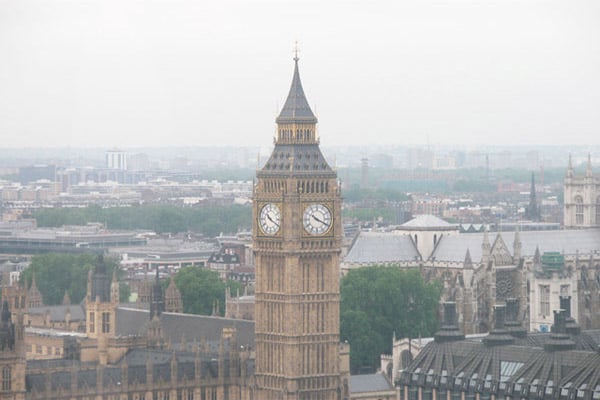With the start of the new year, the industry's top consulting firms are weighing in on the biggest trends of 2015 and making predictions for 2016. Europe has seen a particularly exciting year, with terrorist attacks, the ongoing migrant crisis and both economic and political instability shifting travel patterns and investment decisions alike.
Savills Looks Back at the UK's Deal Numbers
Portfolio transactions dominated for the second consecutive year, accounting for 59.3 percent of volumes in 2015 and 52.9 percent in 2014. Major portfolio transactions last year included Lone Star Funds’ acquisition of a portfolio of 22 Mercure hotels as part of their £1 billion acquisition from Moorfield and Fraser Hospitality’s purchase of the Malmaison portfolio for around £363 million.

In London alone, transaction volumes doubled to £3.6 billion in 2015 from £1.8 billion the previous year. While the regional hotel market accounted for 55.6 percent of transaction volumes, this is a decrease from its 71-percent share in 2014. But STR Global's numbers for December 2015 saw decreases in several metrics across London. Demand dropped 1.8 percent while supply rose 2.5 percent. Occupancy fell to 74.9 percent (a drop of 4.2 percent) and RevPAR decreased 5 percent overall. STR's analysts blamed the occupancy drop on the November terrorist attacks in Paris and other recent threats throughout Europe (more on those later). While London saw a decrease in the last month of the year, however, STR noted that Birmingham and Scotland (with the exception of Aberdeen) saw "generally positive results" in December.
Robert Stapleton, hotels director at Savills, said that the advisors expect 2016 to be "another strong year for investment" thanks to the regional market going strong and "such a significant amount of equity" that could come into the sector. "We are still experiencing growth in demand for regional assets from investors seeking higher return profiles," he said. "We equally expect London to continue to show impressive capital growth, albeit at a slower rate, as well as increased transaction volume as overseas investors in particular seek capital preservation opportunities to shield money from the volatile equities market.”
Three Key Factors from HVS
HVS noted three major issues facing Europe's hotel scene for the new year. These include growing demand for hotel acquisitions that drives private equity investors to sell their assets ahead of the usual investment time-frame (remember the sale of Malmaison and Hotel du Vin by KSL Capital Partners to Fraser Hospitality after only two years), continued consolidation among branded hotel chains (think Marriott's purchase of Starwood and Accor's acquisition of Fairmont), and the long-term effects of terrorist activities (like the downturn in travel to Sharm el-Sheikh after November's bombing).
HVS London chairman Russell Kett said in a statement that he expects demand for hotel acquisitions in Europe to continue as investors, particularly those in the US and Asia, continue to diversify their investments globally. “Some have already shown their desire to sell the hotels they have only recently acquired—well before the usual five- to seven-year time normally sought,” he said, calling the phenomenon “early checkout.” The trend, he continued, will continue as long as there investors keep looking to acquire hotels and portfolios and are eager to close quickly.
High-level transactions like these keep eyes on the sector and attract buyers, Kett continued. “It is also an indication that owners are starting to feel we are approaching the peak of the property cycle, although this could remain the case for some time, conceivably through 2016 and even 2017.”
Consolidation is likely to continue, while acquisitions and the restructuring which will inevitably follow, will act as a catalyst to other groups as they seek to benefit from the economies of scale such transactions generate. “When major companies coalesce, there are implications on some of their brands—the weaker performers being subsumed into their stronger counterparts being the most obvious consequence as well as savings on duplicated overheads,” Kett said.

Another key impact on Europe’s hotel sector will be the terrorist atrocities seen in Tunisia, Egypt, Paris and elsewhere, which will affect potential travelers, especially leisure visitors, for some time to come. STR Global reported that for November, the month of the Paris attacks, the City of Light saw decreases in both occupancy (-12.1 percent to 66.5 percent) and RevPAR (-1.3 percent to €165.68). France as a country reported decreases in occupancy (-3.1 percent to 58.2 percent) and RevPAR (-1.4 percent to €73.83).
“The propensity to travel should recover quickly, but not before resort locations in Spain, Italy, Greece, the Adriatic, Cyprus and Malta continue to benefit from displaced demand from North Africa and Egypt," Kett said. “Migrants and refugees fleeing from Syria and other areas of conflict will continue to put pressure on Turkey, Greece and neighboring countries, a situation that is unlikely to be alleviated in 2016.”
While London, Paris, Rome and Amsterdam have been showing strong numbers throughout 2015 and are poised for continued growth in 2016, Kett believes that hotel investors will start to look more toward secondary and tertiary cities in order to diversify their investments.
